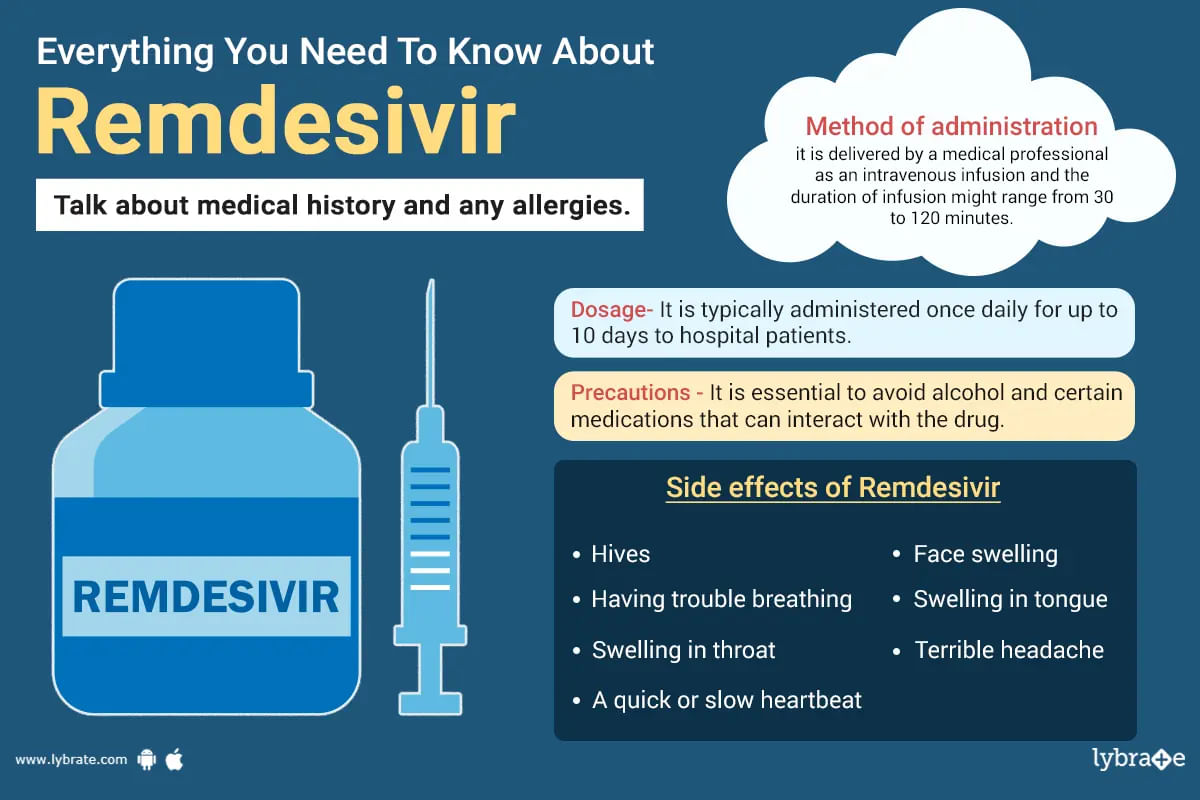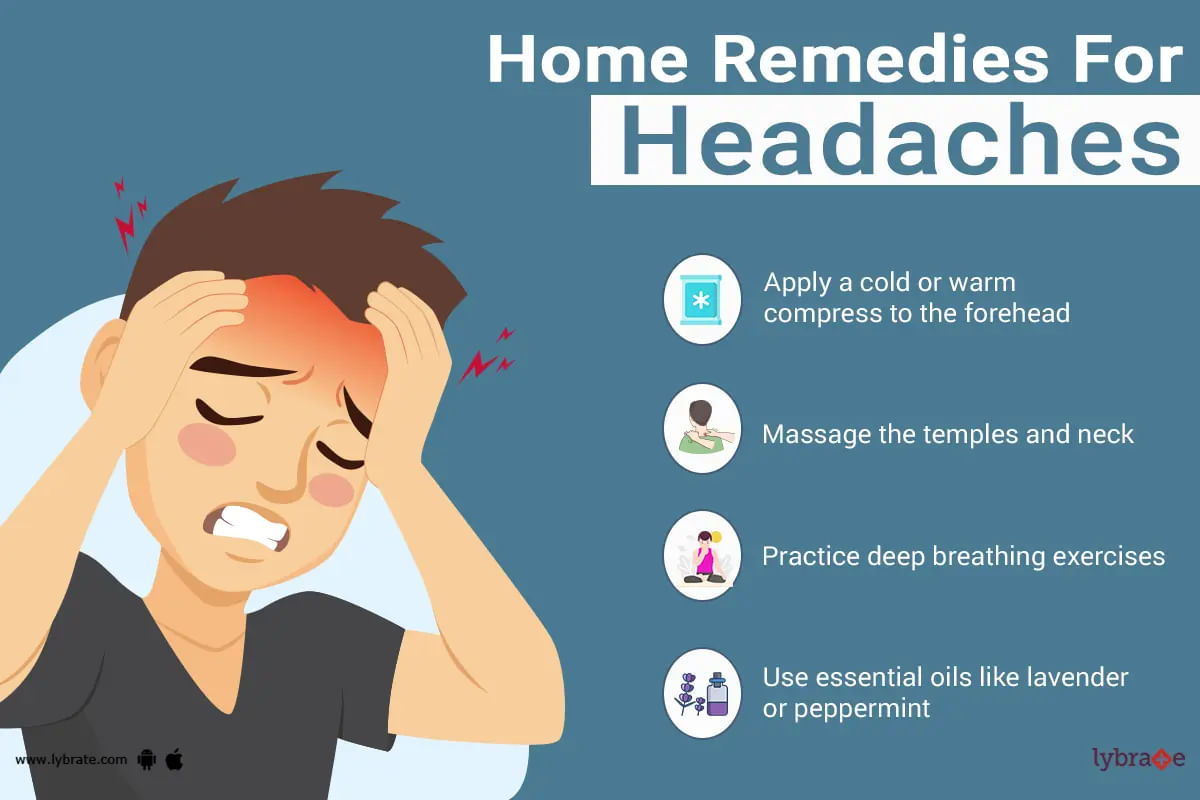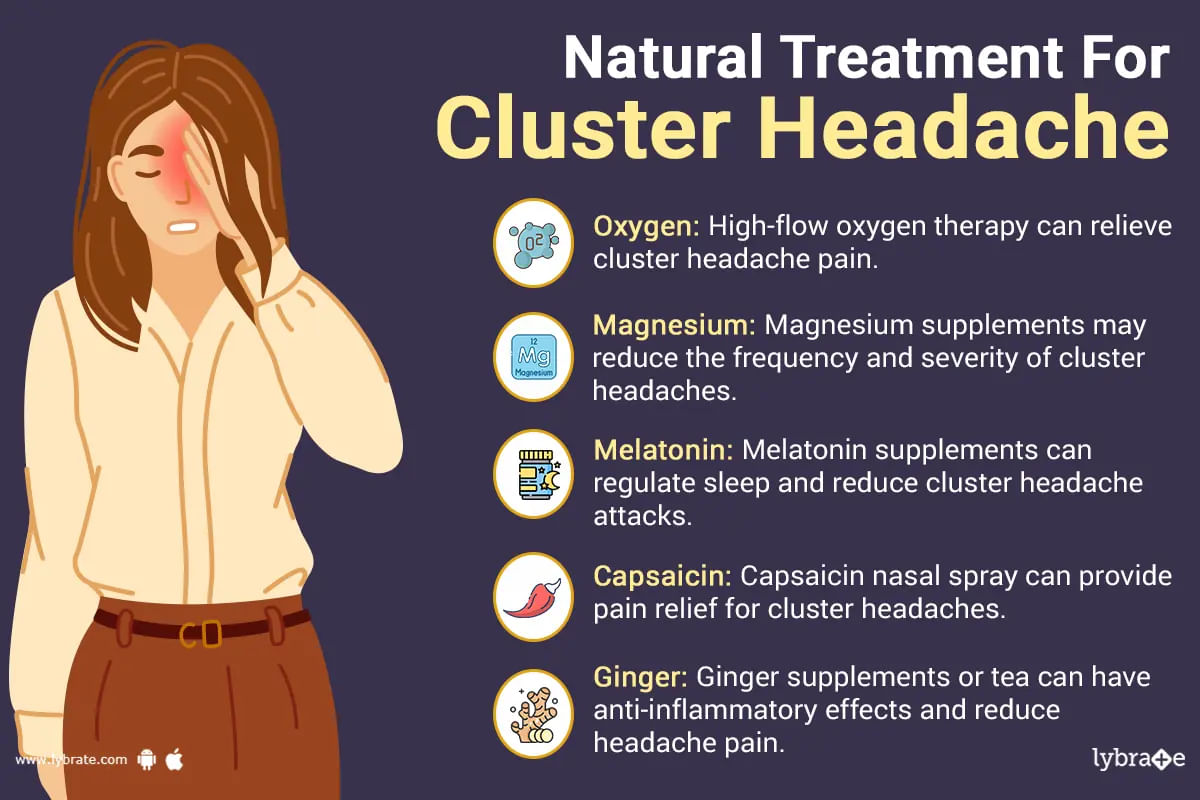Get the App
For Doctors
Login/Sign-up
About
Health Feed
Find Doctors
Health Packages
AllQ&AsTipsQuizzes
Headaches Tips
Last Updated: 3 years ago• Featured Tip
Share
Bookmark
Report
Remdesivir is an antiviral drug used to treat individuals with positive results for covid-19. It has been approved for the treatment of covid-19 and works by preventing the virus from replicating and disseminating itself throughout the body. ;
It can be used by adults and kids who are at least 28 days old and 7 pounds or more (3 kilograms). It is offered to patients who are undergoing medical treatment as well as those with mild-to-moderate covid-19 who ar...more
78 people found this helpful
Last Updated: 3 years ago• Featured Tip
Share
Bookmark
Report
Dr. Prof. Arunangshu bhatacharyya
Https://www. Lybrate. Com/kolkata/doctor/dr-arunangshu-bhatacharyya-orthopedist ;
Mbbs, Ms. - orthopaedics
27 years experience 800 at clinic 400 online
Prof. Arunangshu bhatacharyya, md, is an accomplished orthopaedic surgeon who has devoted his career to helping those in suffering. In 1995, he graduated with an mbbs from burdwan medical college, and in 2000, he earn...more
62 people found this helpful
Last Updated: 3 years ago• Featured Tip
Share
Bookmark
Report
Headache means the pain in the head. The other name of headache is cephalalgia. The pain in the head is the result of the disorder of migraine, cluster headache, headache due to the tension and stress. There are various types of headache, such as cold-stimulus headache, sinus headache, tension headache, cluster headache, hangover headache and migraine headache. The symptoms of headache are pain in the head, neck pain, dizziness, high blood pressure, sensitivity to light, loss...more
287 people found this helpful
Last Updated: 3 years ago• Featured Tip
Share
Bookmark
Report
This is a kind of headache which has a very severe impact on the person suffering from it and the person experiencing it can have several attacks of these occurring in a very severe fashion for a time period of 24 hours and these attacks are more likely to occur during the night time. This kind of cluster headaches are likely to happen daily for weeks or months and after sometime it is going to be on a remission but there is no surety that it will not be returning back and th...more
956 people found this helpful
Last Updated: 3 years ago• Featured Tip
Share
Bookmark
Report
Ayurvedic Doctor•Chennai
क्लस्टर सिरदर्द एक गंभीर प्रकार का सिरदर्द है। इसमें रोगी को अचानक सिर दर्द उठता है जो लगभग 24 घंटों तक बना रह सकता है।ये अधिकतर रात में होते हैं। दैनिक क्लस्टर सिरदर्द के अटैक हफ्तों या महीनों तक जारी रह सकते हैं। हालांकि इसके बाद कुछ महीनों या सालों तक इनके अटैक नहीं भी पड़ सकते हैं।
क्लस्टर सिरदर्द अन्य प्रकार के सिरदर्द से काफी भिन्न होते हैं। ये बहुत गंभीर हो सकते हैं और अक्सर इन्हें चिकित्सा प्रबंधन की आवश्यकता होती है। ये बात अलग है कि ये बहुत दर्दनाक हो सकते हैं पर क्लस्टर सिरद...more
क्लस्टर सिरदर्द अन्य प्रकार के सिरदर्द से काफी भिन्न होते हैं। ये बहुत गंभीर हो सकते हैं और अक्सर इन्हें चिकित्सा प्रबंधन की आवश्यकता होती है। ये बात अलग है कि ये बहुत दर्दनाक हो सकते हैं पर क्लस्टर सिरद...more
Last Updated: 3 years ago• Featured Tip
Share
Bookmark
Report
Top 8 doctors for headaches in bangalore
1. Dr. Sharon christy r
Https://www. Lybrate. Com/bangalore/doctor/dr-sharon-christy-r-general-physician
Mbbs
1 year experience 100 at clinic 100 online
Dr. Sharon christy r is a well-respected physician having a number of patients treated with complex head-related disorders. She is among those who listen to your problems and provide you with the best treatment. Working as a general physician,...more
Last Updated: 3 years ago• Featured Tip
Share
Bookmark
Report
Top 10 doctors for headaches in delhi
1. Dr. Sanket gupta
Https://www. Lybrate. Com/delhi/doctor/dr-sanket-gupta-homeopath
Bhms, md-homeopathy, pgpc - preventive cardiology
13 years experience 500 at clinic 250 online
He is a homoeopathic specialist who has worked in the medical profession for many years, curing hundreds of people. He is a very skilled allergist/immunologist and also a specialist in pain management and obesity. He ha...more
173 people found this helpful
Last Updated: 3 years ago• Featured Tip
Share
Bookmark
Report
Dr. Pooja anand sharma
Https://www. Lybrate. Com/delhi/doctor/dr-pooja-anand-sharma-psychologist
Ph. D - psychology, m. Sc. - counselling and psychotherapy, m. A - psychology,
18 years experience 1000 at clinic 500 online
The doctor is well-known in the field of psychology for treating various mental diseases such as schizophrenia. Anxiety induced by bipolar disease, traumatic stress disorder, borderline personality disorder, migraines, and trauma head...more
Https://www. Lybrate. Com/delhi/doctor/dr-pooja-anand-sharma-psychologist
Ph. D - psychology, m. Sc. - counselling and psychotherapy, m. A - psychology,
18 years experience 1000 at clinic 500 online
The doctor is well-known in the field of psychology for treating various mental diseases such as schizophrenia. Anxiety induced by bipolar disease, traumatic stress disorder, borderline personality disorder, migraines, and trauma head...more
12 people found this helpful
Last Updated: 3 years ago• Featured Tip
Share
Bookmark
Report
1. Dr. Bharathi a v
Https://www. Lybrate. Com/bangalore/doctor/dr-bharathi-a-v-dietitian-nutritionist
Bsc - dietetics/nutrition, msc - dietetics/nutrition, phd
28 years experience 1500 - 3500 at clinic
Through her many years of dedicated service as a dietitian and nutritionist, she has redefined excellence. As a registered dietitian and certified nutritionist, she assesses and treats a wide range of complicated illnesses. Additionally, she is an obesity ex...more
Https://www. Lybrate. Com/bangalore/doctor/dr-bharathi-a-v-dietitian-nutritionist
Bsc - dietetics/nutrition, msc - dietetics/nutrition, phd
28 years experience 1500 - 3500 at clinic
Through her many years of dedicated service as a dietitian and nutritionist, she has redefined excellence. As a registered dietitian and certified nutritionist, she assesses and treats a wide range of complicated illnesses. Additionally, she is an obesity ex...more
Last Updated: 3 years ago• Featured Tip
Share
Bookmark
Report
Homeopathy Doctor•Bangalore
1. Dr. Rishabh vyas
Https://www. Lybrate. Com/bangalore/doctor/dr-rishabh-vyas-homeopath
Bhms
7 years of experience 300 at the clinic 250 online
He is a diabetologist and a thyroid specialist. He is a practising sexologist and an authority on male sexual dysfunction. He is an expert in infertility and allergies. He has training as a homoeopath. In 2015, he received his bachelor of homeopathic medicine and surgery degree from rajiv gandhi university ...more
Https://www. Lybrate. Com/bangalore/doctor/dr-rishabh-vyas-homeopath
Bhms
7 years of experience 300 at the clinic 250 online
He is a diabetologist and a thyroid specialist. He is a practising sexologist and an authority on male sexual dysfunction. He is an expert in infertility and allergies. He has training as a homoeopath. In 2015, he received his bachelor of homeopathic medicine and surgery degree from rajiv gandhi university ...more
Book appointment with top doctors for Headaches treatment
View fees, clinic timings and reviews
Ask a free question
Get FREE multiple opinions from Doctors
posted anonymously















